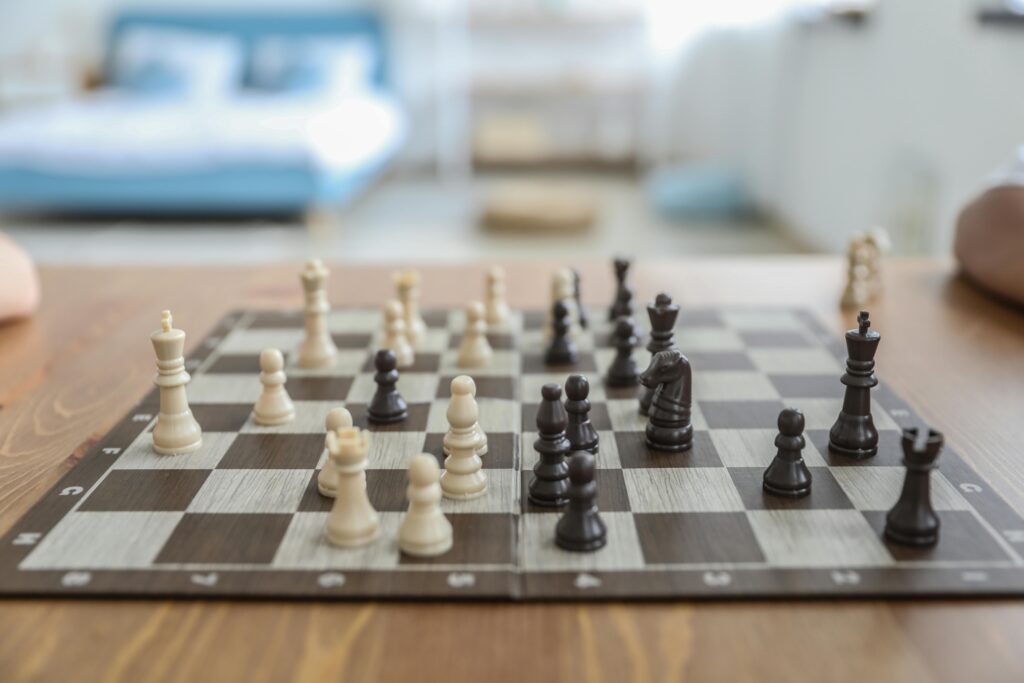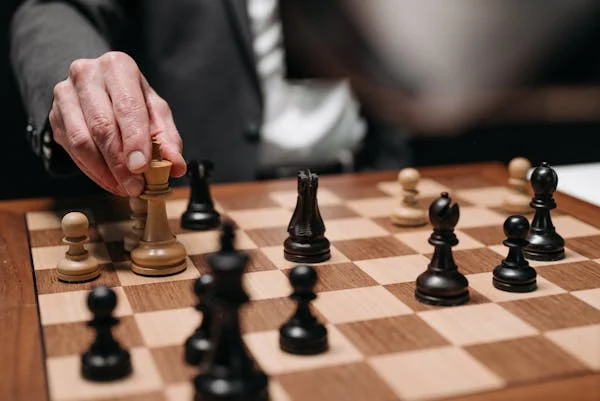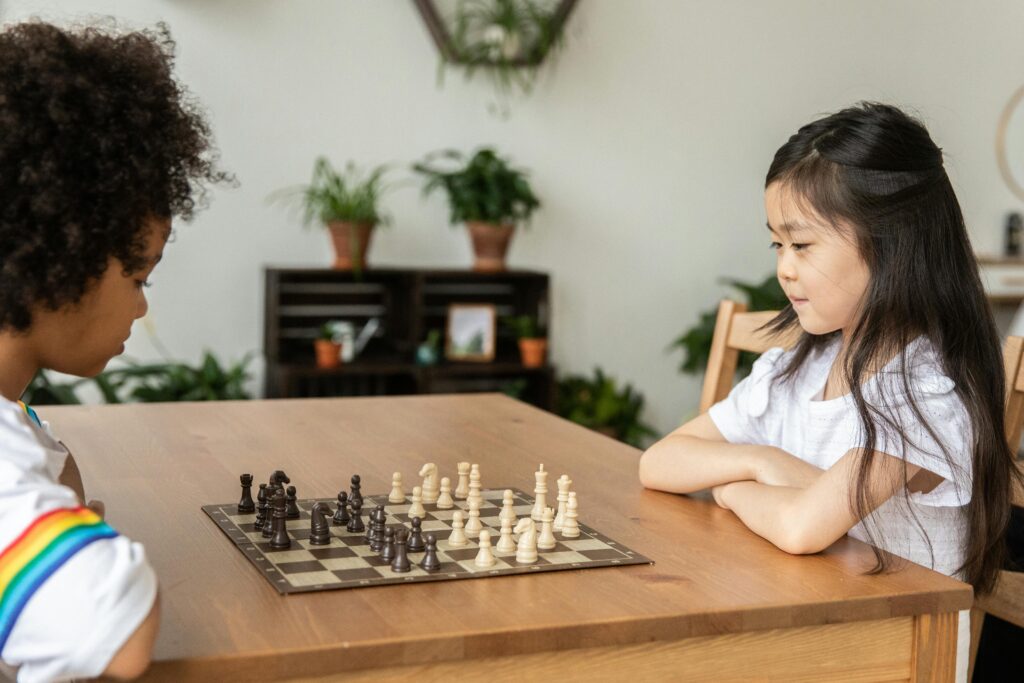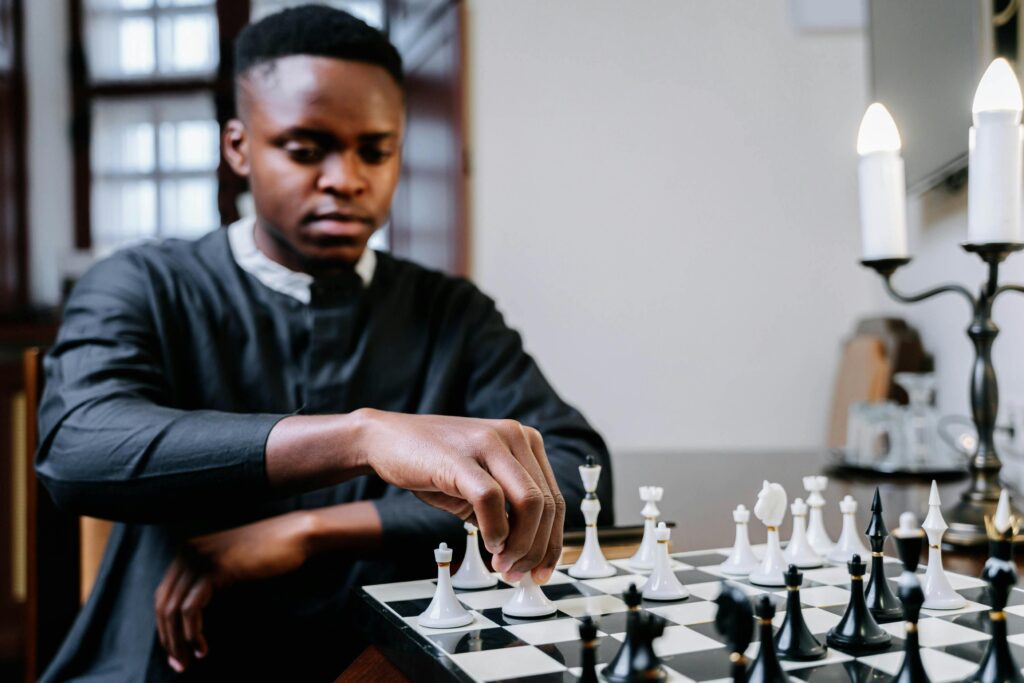Tooting is a lively part of London. Families here care about giving their kids the best start in life. That means good schools, fun hobbies, and yes—smart choices when it comes to after-school activities. One of the best things kids can learn today is chess.
Online Chess Training
Landscape of Chess Training in Tooting and Why Online Chess Training is the Right Choice
Tooting is full of energy. It’s busy, vibrant, and growing. You can find parks, playgrounds, schools, and sports clubs around every corner. But when it comes to chess, the scene is still catching up. There are some clubs and a few small groups where kids play chess on weekends.
But most of these don’t follow a plan. They’re casual. They meet now and then. The teachers may be kind, but they’re not always trained coaches. And very few offer structured lessons for kids who want to grow from beginner to champion.
That’s where online chess training comes in.
Online chess is not a new trend anymore—it’s the smart choice. It doesn’t matter if it’s raining outside or if you’re stuck in traffic. You don’t need to worry about finding parking or driving back and forth from a club. Your child can sit at home, log in, and start learning from real coaches, from anywhere in the world.
And not just that—online chess schools offer something even better: structure.
When a child joins a good online chess academy, they follow a path. Lesson after lesson, they go from knowing the basics to solving hard puzzles, learning strategies, and even competing in tournaments. They don’t just “play” chess—they grow with it.
So while Tooting may have a few local chess groups, online coaching brings the world to your doorstep. And when it comes to structured learning, nothing beats the right online school.
How Global School of Chess is The Best Choice When It Comes to Chess Training in Tooting
Now, let’s talk about what makes Global School of Chess so special. If you’re a parent in Tooting, this is the academy you’ve been searching for—even if you didn’t know it yet.
First of all, Global School of Chess is not just any online school. It’s a family of chess lovers. We teach kids from over nine countries. Our coaches are FIDE-certified, which means they are trained by the top chess body in the world. That’s like learning football from a coach trained by FIFA.
But what truly makes us different is how we teach.
We don’t just throw videos at kids and say, “Go learn.” We offer live classes—real-time, face-to-face teaching. Your child talks to a coach, asks questions, and gets answers right away. They solve puzzles, play games, and learn smart moves, all while having fun.
Every child gets a personal path. We don’t believe in “one size fits all.” Some kids learn fast. Some need more time. Some love puzzles. Some love games. We listen, we watch, and we adjust. Because that’s how real learning happens.
We also hold bi-weekly tournaments online. These are friendly, fun, and build strong sportsmanship. Kids don’t just learn chess; they make friends across the world.
And here’s the best part: you can try it for free.
Yes, a real class, with a real coach, for free. You don’t have to guess if it’s right for your child. Just visit this link and book a free trial today.
Many parents in Tooting have already joined us. Their children are thriving—not just in chess, but in focus, patience, and smart thinking.
Your child could be next.
Offline Chess Training
Offline chess training has long been the traditional choice. It feels familiar. A room, a board, a group of eager kids—all sitting with a coach. But as the world evolves, even this old-school charm needs to grow smarter.
For businesses running offline chess centers in Tooting or anywhere else, now is the moment to think deeper, act sharper, and adapt faster.
Offline training offers face-to-face connection. Kids get to shake hands, smile across a real chessboard, and enjoy that physical feel of moving the pieces. That connection is valuable—but it’s not enough.
For local academies, this is where strategy must step in.
Rethinking Structure: From Casual to Curriculum
Many offline classes operate without a real curriculum. The sessions change based on who shows up or how the coach feels that day. This might work for casual learners—but for serious growth, kids need structure.
Actionable Advice: Design a clear chess learning path for your offline program. Break it into levels (beginner, intermediate, advanced) with measurable goals. Print it, share it with parents, and show progress through reports or certificates. This adds real value and keeps families loyal.
Time Is a Currency
Offline classes eat up time. Commutes, setup, waiting—all of this cuts into actual learning. Parents feel this. They may not say it, but they compare it to online options that start and end right on time.
Actionable Advice: Respect your families’ time. Run classes like clockwork. Create fast check-in systems, set clear start and end times, and send session summaries via email or app. Make it feel like time well spent.
Personal Attention: The Big Gap
In large offline groups, some students get overlooked. Coaches can’t give everyone equal focus—and kids notice. This leads to disengagement and slow progress.
Actionable Advice: Offer micro-coaching moments. Add short, 5-minute 1-on-1s at the end of each group session. Rotate weekly. It’s a small touch with a big impact. Parents love it, and kids feel seen.
Mix It Up With Tech
Offline doesn’t have to mean “low tech.” Many training centers still use basic boards and dry erase markers. That’s not enough in a digital world.
Actionable Advice: Add tablets or smartboards. Use digital chess boards during analysis. Record lessons and upload them to a parent portal. This hybrid model bridges the best of both worlds and sets you apart from other offline-only setups.
Tournaments That Build Momentum
Offline training often fails to offer regular competition. And yet, kids thrive on healthy challenge. Without tournaments, chess becomes just another after-school club.
Actionable Advice: Host monthly or bi-monthly in-house tournaments. Offer small prizes, certificates, and highlights to showcase progress. Use photos and scores in your social media to keep the community excited and proud.
Think Like a Brand, Not Just a Class
Most offline chess centers treat themselves as a place for chess lessons. But what if you built a brand that parents trusted, kids adored, and schools wanted to partner with?
Actionable Advice: Build a brand identity. Use a logo, a mission, and a clear story about what your academy stands for. Get listed on local directories. Partner with local schools for after-school programs. Think beyond the room.
Drawbacks of Offline Chess Training
While offline chess coaching has its place in tradition, it’s facing major challenges that businesses can no longer afford to ignore. These challenges aren’t just operational—they’re foundational. Understanding and addressing these drawbacks is critical for any academy that wants to remain relevant, sustainable, and competitive in a digitally moving world.
Limited Reach, Limited Growth
Offline academies are tied to geography. Your student base is limited to those within driving or walking distance. That limits your potential for scale.
Actionable Advice: Expand your offline presence with a hybrid model. Keep the local base, but launch online branches. Use your best local coaches as online trainers. Promote trial classes digitally to attract a broader audience while keeping your brand local.
Inconsistent Learning Environments
Offline venues can vary wildly—noisy halls, shared community spaces, classrooms with distractions. These physical conditions directly impact a student’s ability to focus and learn.
Actionable Advice: Standardize your classroom setup. Invest in quiet, distraction-free spaces with proper seating and lighting. Use visual tools like wall boards and projectors to engage different types of learners. Don’t settle for “good enough”—optimize the space as a serious learning zone.
No Digital Trail for Improvement
Offline coaching often leaves no learning history. There’s no record of what was taught, what a student understood, or where they need improvement. Everything stays in the coach’s notebook—or worse, just in memory.
Actionable Advice: Create a digital supplement for every student. Use tablets or smartphones to log attendance, lessons covered, and progress checkpoints. Even simple Google Sheets can give parents a view into their child’s journey—and gives your business professionalism.

One Coach, Many Levels
In most offline settings, one coach teaches a mixed group. Some are beginners, others are advanced. This uneven playing field slows everyone down—beginners feel lost, advanced students get bored.
Actionable Advice: Restructure your sessions by levels. Offer skill-based groupings or staggered time slots. Have assistant coaches or senior students support younger ones. This improves engagement and gives your business a more elite, personalized touch.
Lack of Real-Time Parent Engagement
Offline chess academies often don’t involve parents beyond registration or occasional events. But today’s parents want more—they want insights, updates, and reassurance.
Actionable Advice: Set up a communication system. Send a short weekly update with what was taught and what students are working on. Host quarterly parent sessions where coaches share growth insights and answer questions. This builds trust and increases retention.
Low Retention and Visibility
Offline classes often suffer from low student retention. Kids drop out quietly. Parents don’t renew. There’s no tracking, and worse—no feedback loop.
Actionable Advice: Start a simple CRM (Customer Relationship Management) system. Track enrollment, attendance trends, and reasons for drop-offs. Follow up with families who pause or leave. Often, a small gesture like a missed-class follow-up can bring them back.
Best Chess Academies in Tooting
Global School of Chess
When it comes to true chess growth, Global School of Chess is the top choice—even for families in Tooting. Let me explain why we believe this.
We use a clear path for learning. Every lesson leads to the next. We start with simple moves, then gradually introduce tactics, strategies, and longer-term thinking. It’s like building a castle brick by brick. No one gets left behind.
Live classes are led by coaches certified by FIDE, the main chess organization in the world. They know how to teach kids in a fun and patient way. They explain not just what to do, but why it’s important.

Each student is unique. If your child picks up ideas quickly, we give them more challenges. If they need patience or extra help, that’s okay—we slow things down. You won’t get stuck in the middle because we personalize every step.
Bi‑weekly online tournaments are a big deal. They give students real experience under friendly pressure. Kids learn how to win gracefully—and how to grow from a loss. They make new friends too.
Your child can try a free trial class, so you can see if it fits. No pressure. Just a friendly lesson with real learning. You decide after seeing the value.
We teach more than chess. We teach life skills—focus, patience, critical thinking, self-confidence. That’s why so many parents trust us. They see their kids growing in and out of the game.
If you want your child to not just learn chess, but to grow in many ways, Global School of Chess is the place to be—even better than any local club in Tooting.
Other Chess Academies in Tooting
While Global School of Chess leads the way, here are some local options you might have heard of.
Tooting Chess Club
Tooting Chess Club is a lovely place to meet other players. It’s friendly and welcoming. But lessons here are informal. Coaches are volunteers. The focus is more on playing together than learning in steps. If your child loves social play, this could be fun—but it may not lead them to real chess skill growth.
Tooting Junior Chess Group
This group meets on weekends and offers simple lessons. It’s great for kids who want to play some casual games. But once again, there’s no real curriculum, no coaching standards, and no progress tracking. It’s more a hobby meetup than a school.
Streatham & Tooting Chess Coaching
Here you’ll find one-on-one lessons with a local coach. That can help, but it depends entirely on the coach’s availability and experience. Often, there’s no backup plan if the coach is absent. Plus, there’s no clear path from beginner to advanced levels.

South London Chess Academy
This academy has a few certified coaches and holds occasional events. Yet, lessons are inconsistent. Some weeks are packed with tactics. Other weeks are light. Progress tracking is weak; it’s hard to tell what your child actually learned month-to-month.
Why Online Chess Training is The Future
Online chess training isn’t just a passing trend—it’s the new blueprint for long-term success in chess education. It’s leaner, smarter, and scalable. But more importantly, it meets learners where they already are: online. For businesses, this isn’t just a change in location—it’s a shift in mindset, model, and opportunity.
Today’s families live digitally. From school apps to streaming platforms, their lives are structured online. The rise of remote work and virtual learning during recent years has only strengthened this habit. So when it comes to chess, the question is no longer “Can we teach online?” but “How well can we do it?”
For chess academies looking to grow, here’s why betting on online is not just smart—it’s essential.
Scalable Impact Without Scaling Costs
Offline academies grow by renting bigger spaces and hiring more staff. That means higher costs. Online academies, on the other hand, can scale across cities or even countries—without moving walls.
Actionable Advice: Build a structured online program that can be replicated across time zones. Start with your current teaching team, use calendar tools, and expand one new region at a time. Record high-quality content for replays and create playbooks for new coaches.
Data-Driven Progress
Unlike offline training, online platforms can track every click, puzzle, and win. You get real data—how long a child spent solving tactics, what topics they’re struggling with, how many games they’ve played.

Actionable Advice: Integrate analytics into your platform. Share this progress with parents weekly. Use dashboards to personalize feedback. Parents love seeing growth in numbers—it builds trust and renewals.
Personalized, Not Generic
Online training allows for smart segmentation. Kids can be grouped by skill, learning speed, and even attention span. You can create breakout rooms, assign different homework, and track who’s responding.
Actionable Advice: Set up tiered learning paths. Have Beginner, Intermediate, and Advanced cohorts—each with its own pace and content. Rotate coaches and provide short evaluations every 4-6 weeks.
Global Community, Local Comfort
Online chess breaks down borders. Kids in Tooting can play with peers in Toronto or Thailand. This builds confidence and broadens their worldview.
Actionable Advice: Host monthly international mixers. Create “global buddy games” where students play across regions. Parents love this idea—it feels premium, and students love the global experience.
Flexibility Wins Loyalty
Online learning fits into family life. No traffic. No stress. No lost classes. This keeps attendance high and parent satisfaction higher.
Actionable Advice: Offer make-up sessions, recorded replays, and flexible scheduling. Create a simple app or portal where parents can manage everything—from class links to billing.
Tech-Enhanced Learning
With online tools like interactive boards, real-time move tracking, and cloud-based puzzles, students learn faster and retain better. This is where online beats offline, hands down.

Actionable Advice: Use platforms that support annotation, visual markers, and instant replay. Train coaches to use tech as a teaching ally, not a replacement.
How Global School of Chess Leads the Online Chess Training Landscape
Now that we’ve explored the world of online chess training, you might be wondering—what makes Global School of Chess the best of them all?
Let’s look deeper.
At Global School of Chess, we don’t just teach chess. We shape young minds. Every move on the board is a step toward stronger focus, sharper memory, and smarter thinking. We help children become problem solvers, planners, and calm decision-makers—not just in games, but in real life.
We do it through live, interactive classes led by certified coaches who care deeply. These aren’t just chess experts—they’re teachers. They understand how kids learn. They know how to explain things simply. They’re patient, friendly, and always there to help.
We don’t believe in one-size-fits-all. Every student has a different learning style, and we honor that. Some kids love puzzles. Others love games. Some learn fast. Others need a bit more time. Our curriculum fits all of them. It’s flexible and personal.
We track progress. Every class, every game, every puzzle solved is part of a journey we carefully watch. That means we can tell when a student is ready for the next level—or when they need a little help to catch up.
We make learning fun. Chess should never feel like a chore. That’s why we use playful techniques, real games, exciting challenges, and regular tournaments to keep kids excited. They feel like part of a team, part of a family.
And most importantly, we grow with you. Whether your child is a beginner or aiming for high-level tournaments, we’re there—guiding, supporting, cheering them on.
We also offer a free trial class so you can see all this in action. Just go to gschess.com/take-a-free-trial-class and sign up. It’s the easiest first move you’ll ever make.
Parents in Tooting are discovering that online chess training with Global School of Chess is not just better—it’s brilliant. More focused, more structured, and more effective than any local club or casual group.

Because in today’s world, great learning doesn’t need four walls. It just needs the right guide. And we’re here for you.
Let your child discover what they’re truly capable of—with the best online chess academy out there.
Wrapping It Up
Choosing the right chess coaching academy in Tooting—or anywhere, really—is not just about learning how to move the pieces. It’s about giving your child the tools to think clearly, plan ahead, stay calm under pressure, and grow confident in themselves. These are life skills, not just chess skills.

